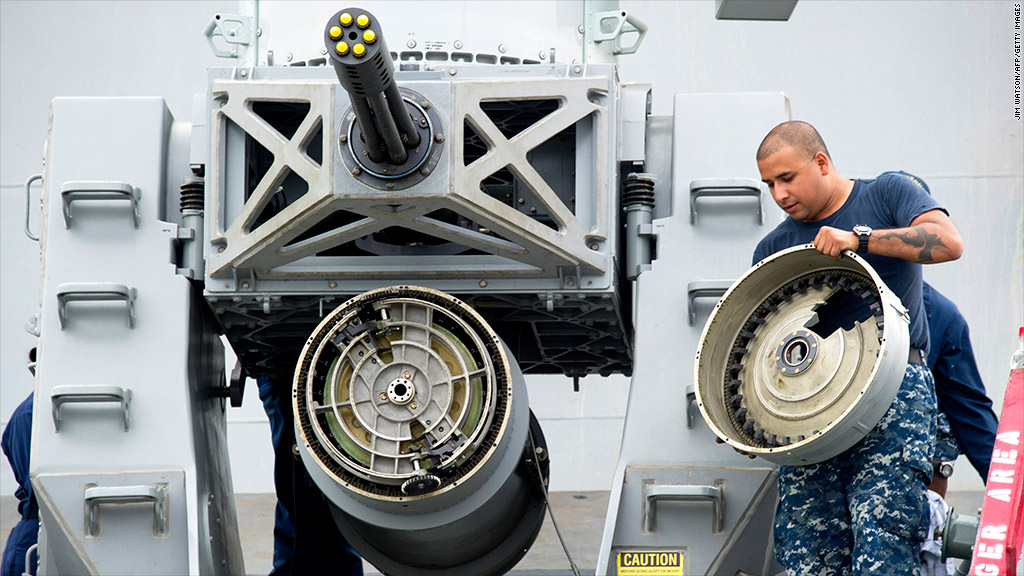
Starting Monday, 650,000 defense employees will be on furlough.
As part of the sequester, or federal spending cuts, that are currently underway, civilian defense workers will be forced to take one unpaid day off each week, leading to a 20% reduction in their pay through Sept. 21.
Some people have made light of the sequester because its effect has gone relatively unnoticed by the public so far. However, the Pentagon is the largest federal employer, with a budget of $680 billion. Even though defense isn't the first agency to start furloughing workers, it is the largest in terms of the sheer number of workers that will be hit by the $85 billion in federal spending cuts that kicked in on March 1.
The employees also work in key areas that equip and prepare U.S. forces deployed in dangerous places. With fewer people to do the job, the furloughs could slow deliveries of much-needed supplies to troops, some warn.
Furloughs will delay repairs on military equipment ranging from patriot missile systems to land mine rakes used to explode bombs ahead of troops that march into dangerous areas, said Deborah Witherspoon, president of the local National Federation of Federal Employees union at the Letterkenny Army Depot in Chambersburg, Pa.
Related: Spending cuts likely deeper in 2014
"Furloughs will not only cause a 20% reduction in pay, but also a 20% reduction in how fast we can get our repair work done and get those items out to the soldiers in Afghanistan and elsewhere around the world," said Witherspoon, whose union has banded with others to lobby Washington to cut defense furloughs.
Unions are also predicting economic problems for rural communities that depend on military bases and depots, where thousands of furloughed employees live and work.
Related: What job cuts meant to me
Defense worker Stephanie Loyd's first furlough day is Friday, July 12. An IT specialist and an Air Force veteran, Loyd has been trying to cram in as much purchasing of information technology contracts as she can to keep programs running at the White Sands Missile Range in Las Cruces, N.M.
"We're doing more work with less people, and now we have less time do it in and less pay to do it with," she said.
It also means her daughter, a sophomore at New Mexico State University, will have to return home this fall instead of living on campus. With a family of five, "we can't afford to have her living in the dorms on a 20% pay cut," Loyd said.
The Obama administration has recently been criticized for what critics say were over-the-top warnings about widespread damage from spending cuts. They say that sequester hasn't led to any of those dire outcomes.
Some of the most noticeable effects were blunted by Congress, which stopped furloughs in the airline and food industries. Programs that help the poor, sick and elderly, however, have already taken devastating blows.

Now, with so many defense workers on furlough starting next week, the cuts' effects will be felt in other ways.
The furloughs don't affect those on active military duty. Another 150,000 of the agency's 800,000 civilian workers have also managed to avoid them because their jobs have been deemed critical. They include intelligence officers, Navy shipyard builders, Army firefighters and foreign nationals.
Defense Department Secretary Chuck Hagel announced the 11-day furlough period in May, down from 22 days originally on the table.
The furlough is expected to save the agency $1.8 billion, a small part of the $40 billion that defense has to cut. Defense officials didn't respond to requests for comment.






